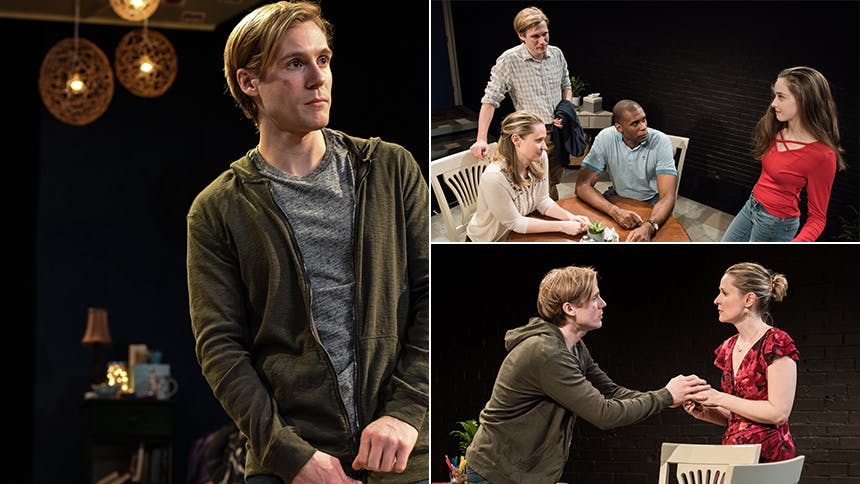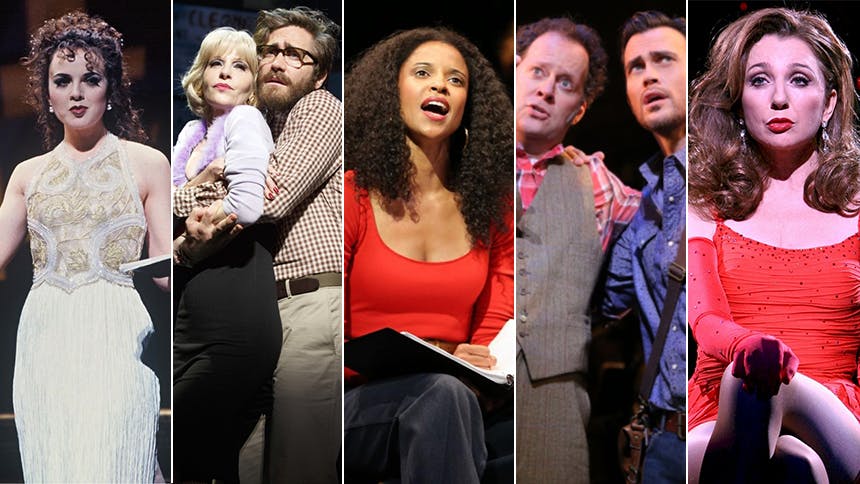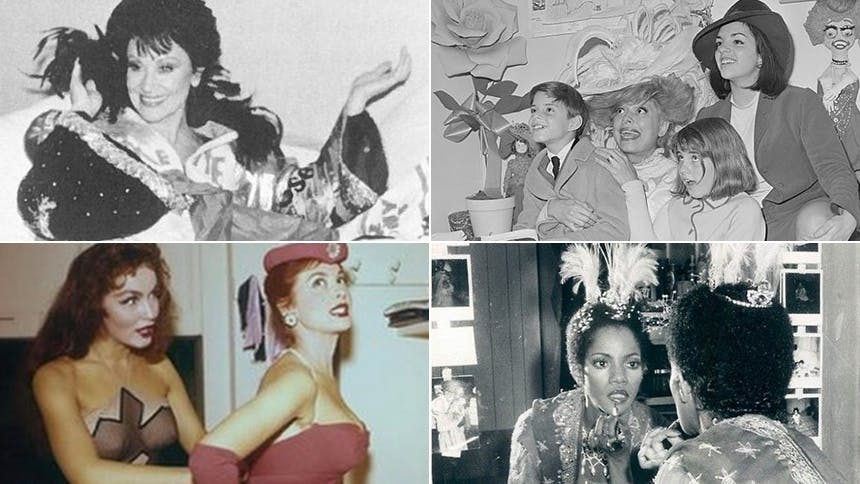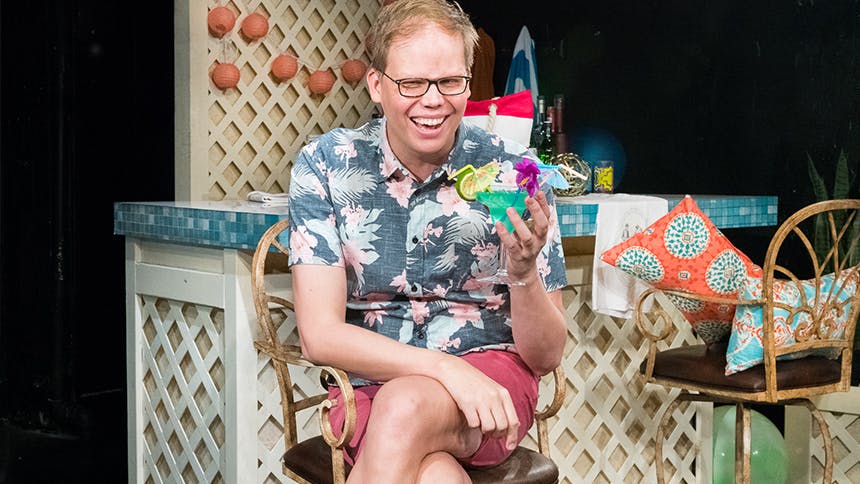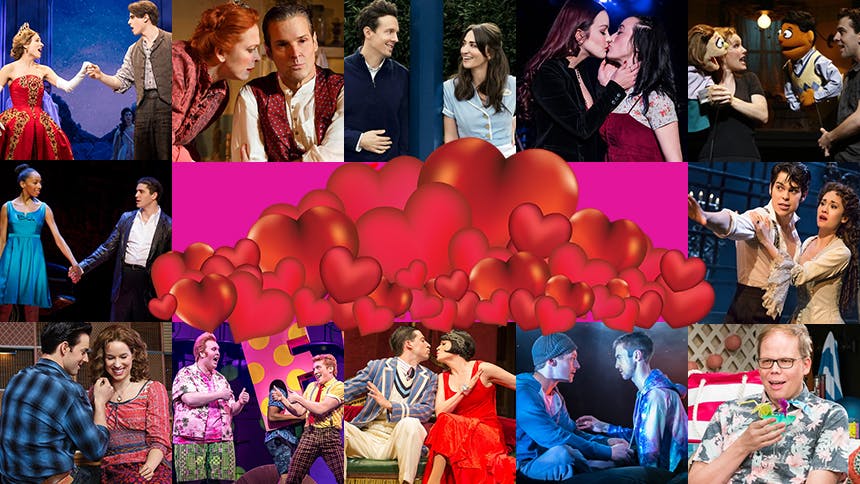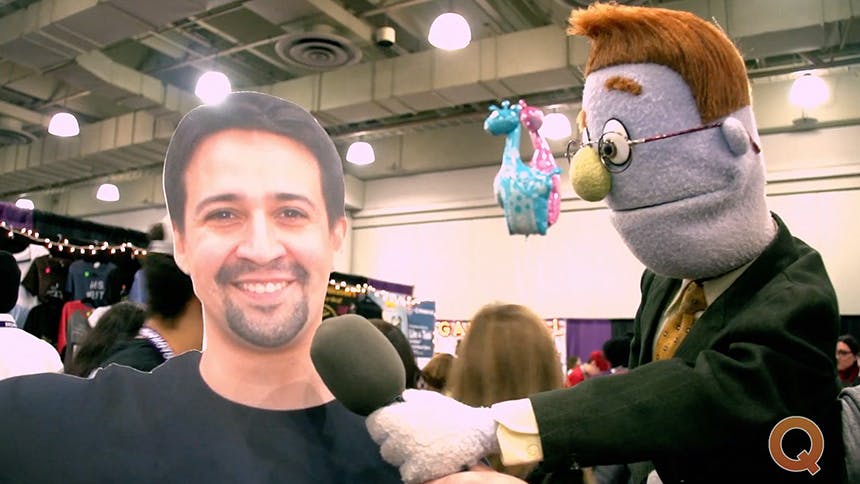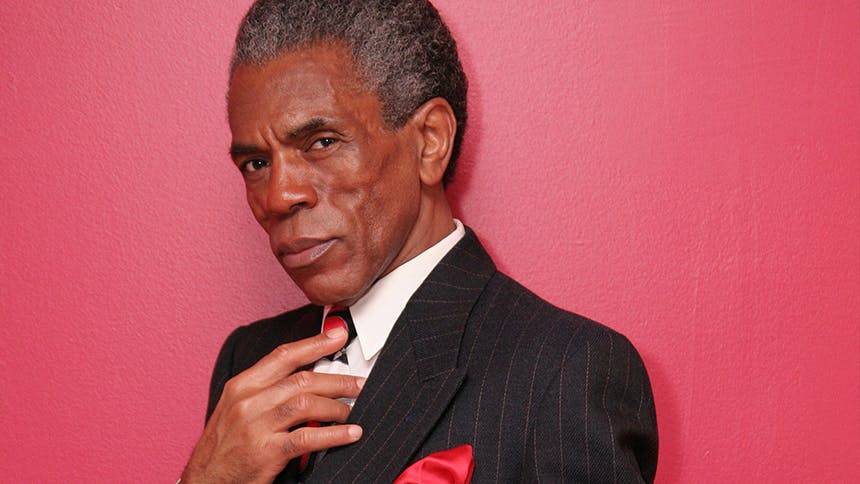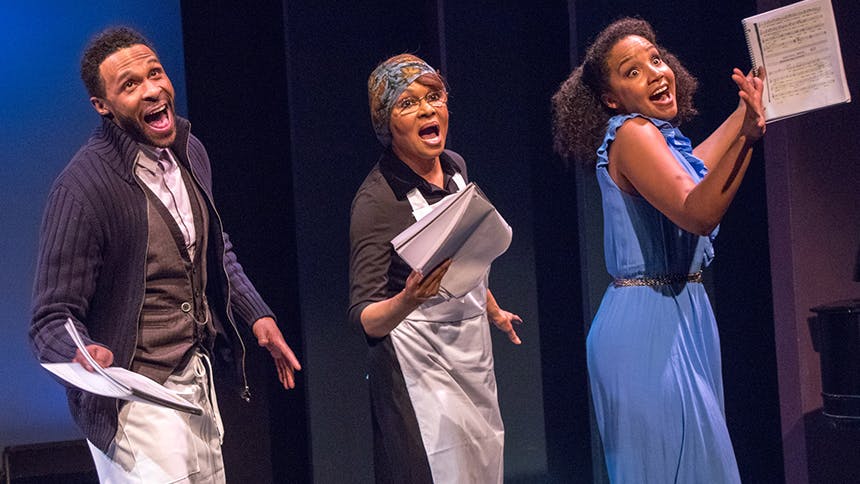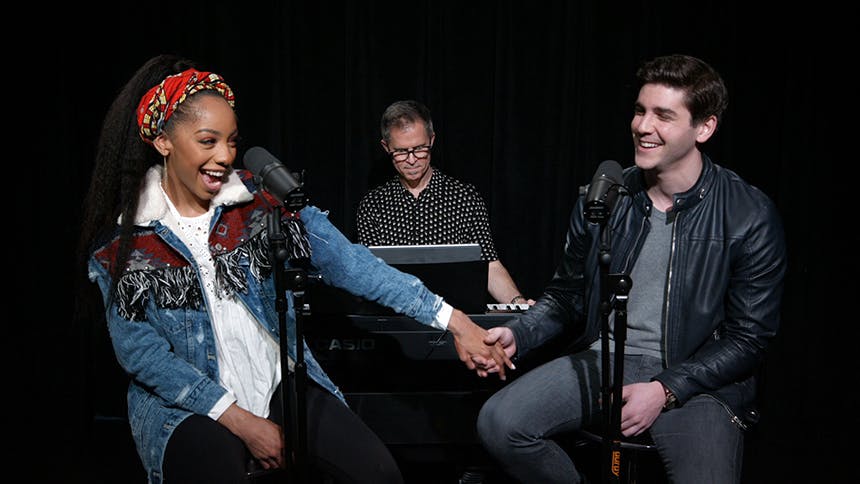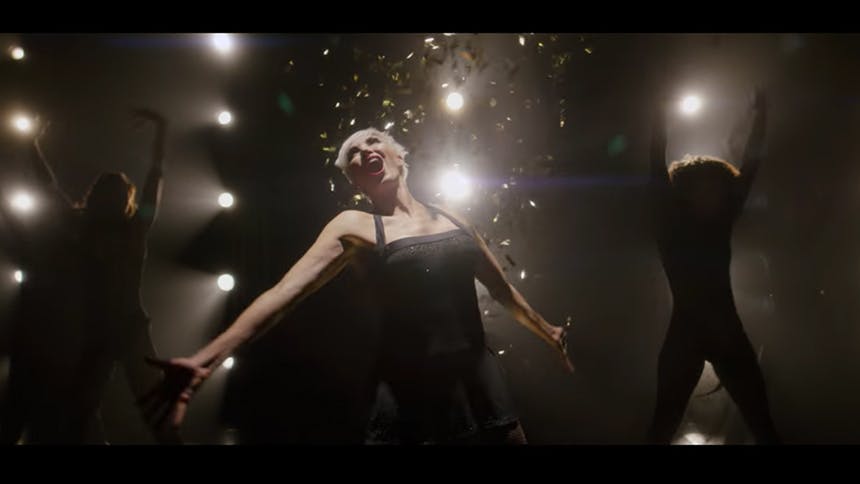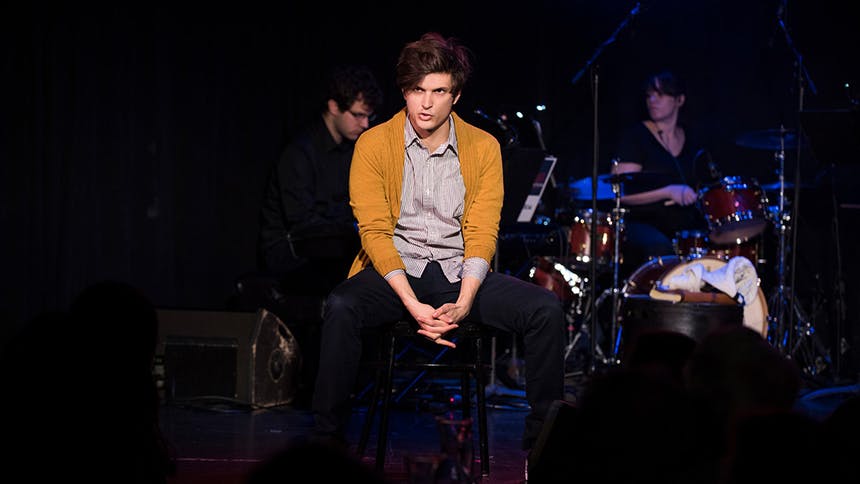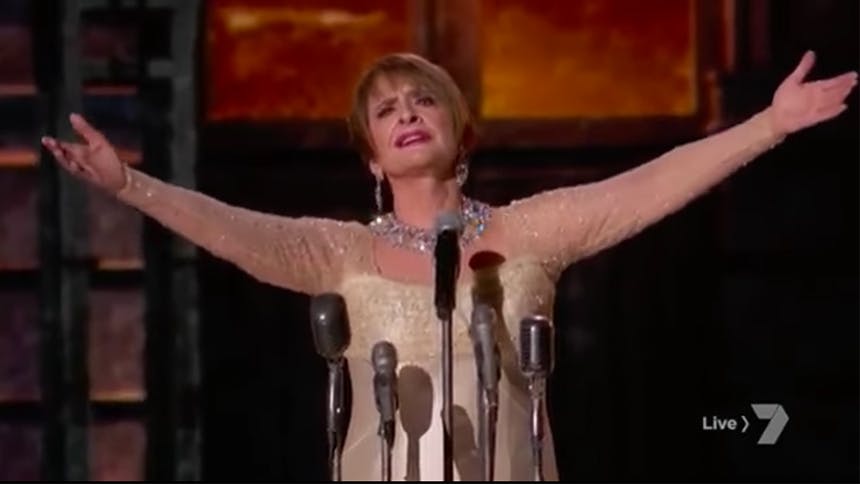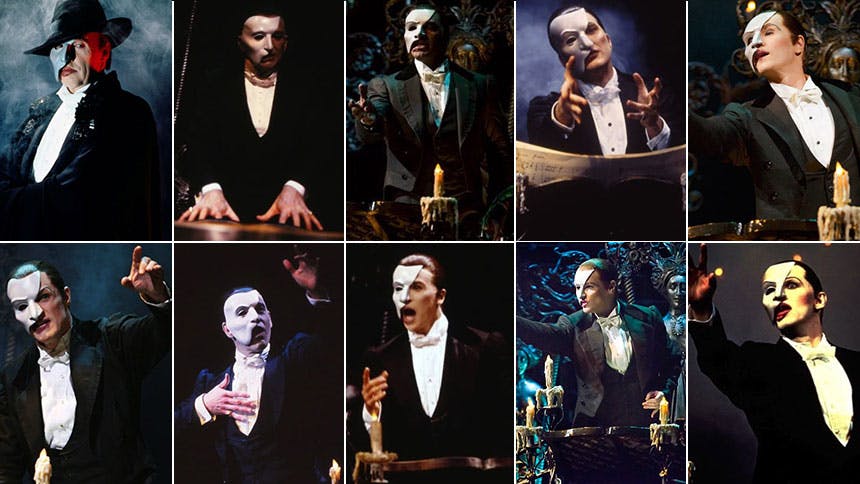Zachary Booth stars in The Barrow Group Theatre Company's world premiere of Scott Organ's dramatic thriller The Thing with Feathers
. Zachary plays Eric, a man in his late twenties who begins an online relationship with a 17-year-old girl. The show includes some major twists and turns that keeps off-Broadway audiences gasping in shock. BroadwayBox caught up with Zach to talk about taking on this complex role, his own life at 17, and his work on TV's Damages and the cult film Keep the Lights On.
1. What excited you most about this project when you read the play and then what scared you most when you were cast?
Originally the thing that was the most exciting for me was the creative team that was in place. I’ve always been a fan of Scott’s plays, and I’ve known him for a long time. Seth Barrish [the director] is the Co-Artistic Director there at the Barrow Group and has been a bit of a mentor to me since I moved to New York. I got my Equity card at the Barrow Group in 2005 working with them on Pentecost. So, I’ve always wanted to take what I learned from Seth (from his school and his book) and practice that in life, and this was the first opportunity I got to do that. Then what I liked so much about the script was how unexpected the story was to me. It’s layered really deeply, and I responded to that.
The thing I was most afraid of was how I could find a way to humanize such a demon of a person. How to normalize that without giving any sort of sympathy or approval to that behavior—a seduction of an underage person. I often find with roles like this, the best route for me is to find the humanity in them and help the audience see them in a sympathetic light, because then it gives them more of a complicated experience.
2. What were you like at 17?
My perception of what I was like at 17 is guaranteed to be 100% inaccurate. [Laughs] At 17, I was a senior in high school, and I was a bit of a troubled guy—I had recently lost my mother to breast cancer a couple of years before that. I was dealing with that in my own way, which I could see now was actually not dealing with that. I was really pulling back from the things in my life that have been most satisfying to me: academics, music, theater. I was really indulging in the things that proved, in the long run, to be least useful and least healthy for me. I was socializing and partying a lot; I was a huge pothead. I was a really angry guy in a small community in Westchester where everybody knew everybody, and so I was sort of allowed to exist that way without much consequence. I was an angry and disconnected guy at that point.
3. What do you hear most often from people about Keep the Lights On and the effect it had on them?
Nowadays, I hear mostly from people that they thought it was a beautiful film and a heartbreaking film, and that’s what sticks with people.
In the immediate response years ago, I would often find people were responding to it because it was a gay film and it spoke so honestly and openly about drugs and because it gave such an accurate depiction of the truth of what a relationship is. I think we go through life thinking we are looking to find this one person who you can then share your life with and skip off into the sunset; and maybe every couple years you have an altercation but you make up, and every day you’re just so happy to see them. I just don’t know that that’s the truth that we are telling our younger selves.
The reality is (even without drug addiction or sex addiction popping up into your relationship), human beings are incredibly complicated and merging two people is so difficult. For the most part, it’s ugly and what comes out of it is this beautiful acceptance of the other person’s flaws and this purity of love that comes with loving with absolutely no conditions. The experience of that is the thing we misrepresent. That’s the thing that’s beautiful that partners share with each other, but I think we get it wrong in the telling—our fairytales are false advertising. That’s the thing most people were responding to, the reality of the relationship.
4. For years, you played Glenn Close's character's son on the TV series Damages. What did you learn about the business or the craft on the set?
I have to say what I learned from the business side of working on a show like Damages is how rare and how special a great project like that really is. When I was inside of it, I think I was concerned with, “Why aren’t I becoming a series regular?” or “What can I do to parlay this into the next thing?” or “Where’s my moment?” Being able to look back on that, it’s just so special to have five years with the same group of people pursuing the same story and digging so deep into those characters. Creatively, it was unlike anything I was able to experience. It really is that special.
5. Based on your Instagram, you see a lot of theatre here in NYC. How does being an audience member inform your work as a stage actor?
It always has the same effect of me: I find it really humbling and really inspiring. So, if I don’t see a lot of theatre, I sort of end up mentally in the same place I was talking about before when I was on Damages: “What am I doing next?/Why am I not getting more?/Where is my next big moment?” But when I’m watching an actor create something and experiencing it along with them, I am sort of re-inspired into what it is I actually like about all of this. I recommit. When I flew to London to see Glenn in Sunset Boulevard and I watched the specificity in spite of the grand size of that performance and the pure electricity she threw into every moment, I was like, “There it is! I get it!” I see an actor in that. That’s an actor doing great work, and that’s what I should be pursuing.
It takes all the noise and brings it down to a very simple idea: I can just keep moving in the pursuit of getting better at what I do and that’s what those people are doing onstage.
Don't miss Zachary Booth's performance in 'The Thing with Feathers' at The Barrow Group Mainstage Theatre through February 10.
